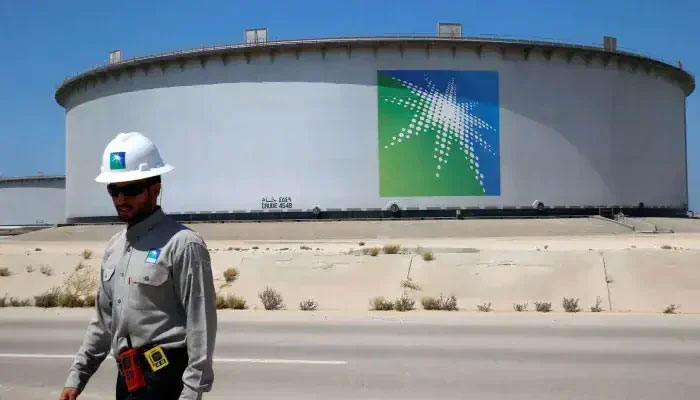Govt launches diplomatic push to win over Riyadh, Chinese firm for $10bn green refinery project

[ad_1]
Pakistan’s envoy in Riyadh asked to approach the authorities to facilitate taking the project forward, say source

- FO also asked to assist in pursuing Sinopec in China.
- SIFC tasked FO after PSO failed to convince Aramco, Sinopec.
- Pakistan notified new green refinery policy as per Saudi wishes.
ISLAMABAD: Islamabad has launched a diplomatic push to win over Saudi Arabia (KSA) and Chinese company Sinopec, known for installing refineries, to set up the $10 billion state-of-the-art and deep conversion refinery with the capacity to refine crude oil of 300,000 barrels per day (BPD) in Pakistan, reported The News on Monday.
“Pakistan’s ambassador in Saudi Arabia has been asked to approach the authorities in Kingdom of Saudi Arabia to facilitate in taking the project forward. The Foreign Office has also been directed to assist in pursuing the project through diplomatic channels, particularly engaging the Sinopec in China to pursue it to become a part of the mega project,” senior officials, privy to the development, told The News.
“After PSO’s top management and top mandarins of Petroleum Division could not convince Saudi Aramco and get a go-ahead from Sinopec, the country’s top decision-making body SIFC has directed the Foreign Office to initiate effective diplomatic channels to help materialise the project.”
“The Pakistan government has already announced and notified the new green refinery policy with incentives of 7.5% deemed duty for 25 years and a tax holiday of 20 years as per the wishes of Saudi Arabia, but the required pace of progress needs some stimulation.”
The officials shared that earlier Pakistani had given the engineering, procurement and construction (EPC) contracts to China’s Sinopec on Saudi Aramco’s request. The Pakistan State Oil, nominated by the Government of Pakistan, is in contact with the Bank of China and China Sinopec.
“Sinopec is also providing services to Saudi Arabia (rigs, well-service, geophysical exploration), pipelines, roads and bridges, and other EPC projects. Sinopec has been serving Aramco, SWCC, RC, and many Saudi local cities, and has earned a good reputation among clients. The authorities contacted Aramco to convince Sinopec to become a part of the project but the authorities didn’t get a response.”
Officials also shared Aramco has told Pakistan that it has detached itself from the Saudi government and was now deregulated to a reasonable extent. They added that the management citing this stated that they were no longer interested in investing in the refinery business across the world as it was no longer lucrative.
This was also confirmed by caretaker Energy Minister Muhammad Ali on November 16, 2023 stating that Aramco was more interested in building a crude-to-chemical petrochemical complex in Pakistan instead of a green refinery. He had also confirmed that Saudi Arabia was keeping itself away from the refinery business and investment globally.
Considering such a scenario, a diplomatic push has been launched to materialise the green refinery project. The relevant authorities said that through diplomatic channels, the exchange of queries and answers about the project had been started with Sinopec.
The refinery is to be constructed based on a 30:70 equity-loan ratio. The equity would be $3 billion and loans $7 billion. Saudi Aramco would share 50% equity of $1.5 billion and 50% equity will be shared by Pakistan in the project.
The remaining amount of $7 billion loans, the official said, would be arranged by Aramco through international financial institutions (IFIs). Besides, the CRBC under the MoU signed on July 27, 2023, would also arrange loans from Chinese banks under the Engineering, Procurement, and Construction (EPC-F) model. Out of the remaining 50% on behalf of Pakistan, PSO will have a share of 25%-30%, and OGDCL, PPL, and GHPL will have a 5% share each. However, Pak Arab Refinery Company (PARCO) did not sign the MoU.
[ad_2]